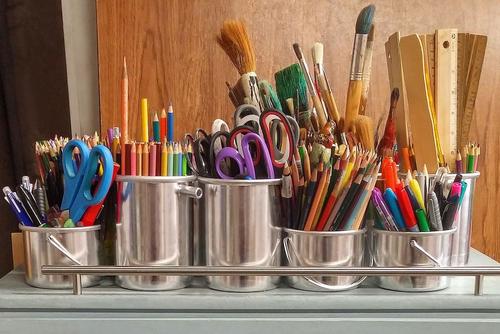You might not be used to the student lifestyle and how to spend money wisely, and as a result, it's always a problem either not spending too much or not saving anything.
Those who can bridge the gap between their desires and their money available might become masters in financial management.
You should carefully consider the expenses you would encounter before beginning your study so that you really can arrange your budget and avoid running out of money.
Your specific requirements will determine the precise amount you'll really have to live on. The financial pressures of university experience can sneak up on you, but excellent financial planning can keep you from getting into too much trouble.
So, here are some methods to manage your expenses as a student:
1. Establish Financial Objectives
What you'd like to achieve in the future as a student may have a beneficial impact on your financial planning. It might be a financial goal to graduate with the smallest amount of student debt possible.
This straightforward goal can enable you to save quite a large amount of money over the course of the academic year. It's just one illustration. Additionally, you could set big goals for yourself and devote all of your resources to achieving them. Ultimately, it is just a personal financial goal that will guide people in living within their means.
2. Food & Drink
Buying and preparing your own meals at home is a lot less expensive than dining out every week, and it can be a great way of forming friendships. There are numerous resources available on the internet to assist you in preparing your own meals at bargain prices.
Your weekly grocery purchase might be the supreme money saver for you; go out near the end of the day when most stores are closing, as most items are discounted, and you can compare prices of goods to discover the best offers. Also buy in bulk, this is generally cheaper than individually.
Most universities are surrounded by supermarkets, allowing you to search for discounts. You should also be able to find a local market in your neighbourhood where you can buy inexpensive and nutritious fruits and vegetables.
When it comes to partying and socialising, you might also want to buy goods at a supermarket and drink before departing, this will save you lots of money compared to buying drinks in bars and clubs.
3. Housing
You can cut your accommodation costs in a variety of different ways no matter if you are going to study in the USA, UK or another country. If you are looking for student accommodation, if possible, always select a household or shared flat over a studio or one-bed apartments or London.
On the outskirts of town, you might sometimes find affordable housing rentals; make absolutely sure there is a decent transportation system that one could use to get both to the college campus and the downtown area.
4. Discounts
Your student ID can save you money on much more than concert tickets and electronics purchases and this is one of the best ways to save money as a student.
You could consider signing up for educational platforms and even get discounts on shopping websites if you have a verified student email account. Some businesses have special student promotions and discounts.
There are also some excellent savings on anything from software applications and transportation to magazines, restaurants, clothes, and so much more. The general version is that you really should always inquire about a student discount; it never hurts to ask.
5. Transportation
When you arrive on campus, you will need to get out and about to explore and experience the delights of your new shot nation or town. If you're a university student, explore if the expense of a commuter pass was included in your fees. Several locations with public transportation offer discounted rates for students.
Attractive cycling routes in recreational spaces and bicycle lanes on crowded roads can be found in many towns that host universities. As a result, having a bike is a fantastic and cost-effective way to explore the city.
6. Get a Job
You could consider part time work as a student as an extra income stream. This is a great way to boost your bank balance and make sure that your bank balance isn't just going down. There are lots of jobs available to students, some have totally flexible hours which can be scheduled around your studies. Another option is to search summer jobs abroad for students which are a great way to earn money during the 3 month break.
Before you begin your educational voyage, set aside money, create a budget, and implement a system for measuring and optimising your expenditures. You will save effort, frustration, and cash if you plan accordingly. If you have any recommendations we have missed, let us know in the comments section below.








